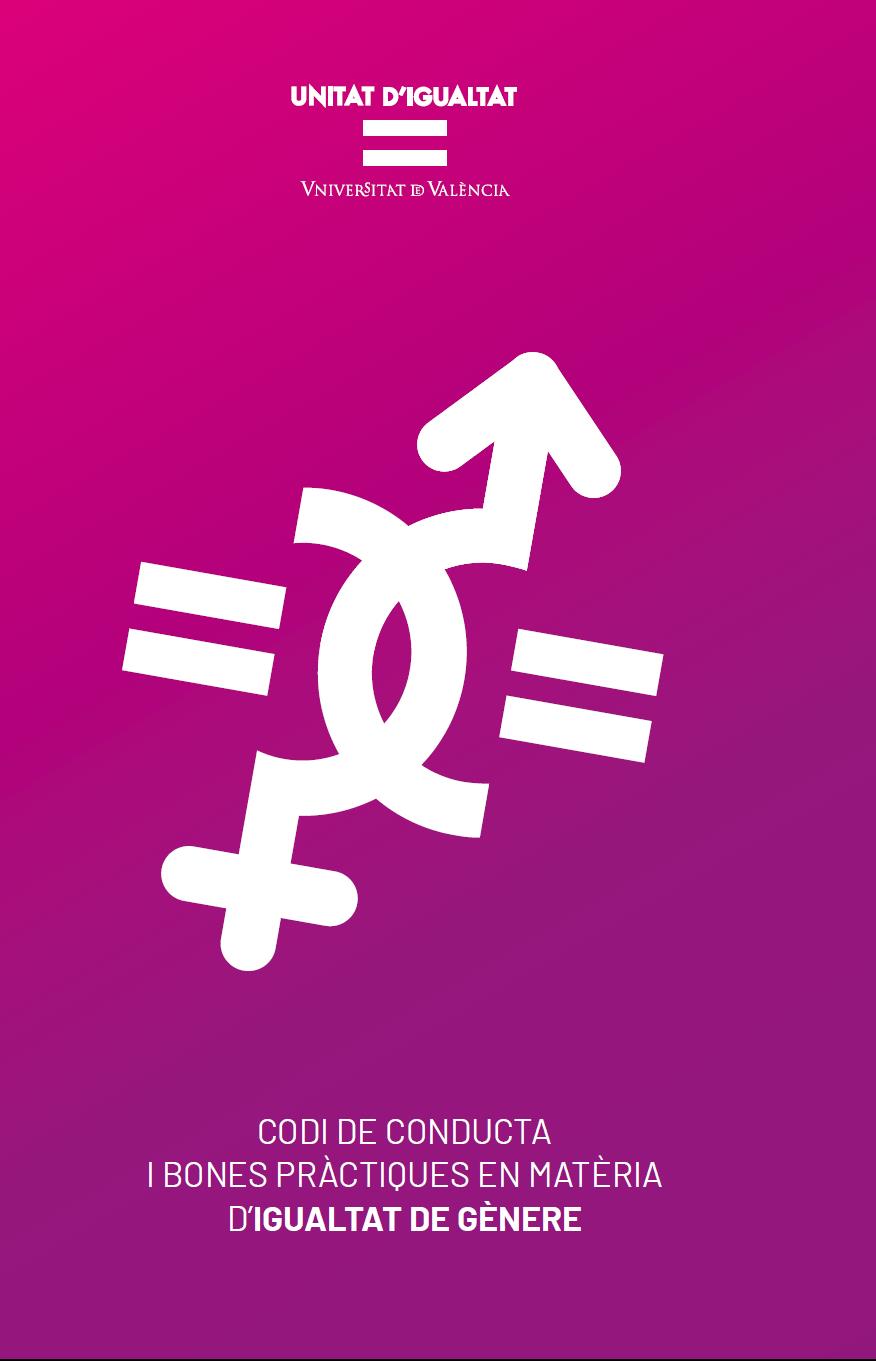 CODE OF CONDUCT AND BEST PRACTICES ON GENDER EQUALITY (english version)
CODE OF CONDUCT AND BEST PRACTICES ON GENDER EQUALITY (english version)
The Universitat de València has both formal and informal
procedures for the resolution of conflicts arising from
non-compliance with this Code of Conduct, and will ensure that
those who report an offence are not harmed.
- Guarantee gender equality in our Institution.
- To ensure that the University of Valencia is a space free of gender violence.
- Enable people who graduate from our institution to be agents of social change in this matter, influencing the modification of professional, civic, family and personal behaviors to achieve gender equality in their environment.
- In addition, in front of the legislative statements, necessarily generic when not ambiguous, the Code of Conduct and Good Practices:
- It specifies the university action that must be initiated in matters of gender equality in its various fields of action, giving clear guidelines for action. Plus,
- Explain the behaviors that are not tolerable in the relationship between women and men at our university.
Coexistence in equality and against gender violence at the University of Valencia is presented as a university intervention project in the field of gender equality focused on a code that makes explicit the behaviors that are not tolerable in relations between men and women here in the University of Valencia. Miguel Lorente, former delegate of the Government for Gender Violence, denounces that "6% of university students suffer gender violence, and between 20 and 25% of students and workers suffer sexual harassment at some point during their passage through the institution. The university environment, as we see, does not escape the harsh reality of gender violence and that is why the University of Valencia maintains as a priority line of its work for Equal Opportunities between women and men, the prevention of gender violence both in the student body, as in the Administration and Services Staff and Teaching Staff.
This is how the Code of Conduct and Good Practices on gender equality was born, as a participatory document, to which contributions can be made to improve it constantly, through the form provided for this purpose. The current document has been enriched with the contributions of the entire university community, 22 proposals for change have been incorporated from the many comments that have been sent to us through the form and the work groups generated in the classroom.
This Code of Conduct came into force in the academic year 2017/2018 and thus complying with the II Equality Plan of the University of Valencia (action 1.1.2). It is the result of a participatory work of the Unitat d'Igualtat with the Equality Commissions of the centers, the unions, and the Rector's Delegate for students, and some student groups (such as the Unides group of feminist students). It is worth making special mention of the initiative of the Nursing and Podiatry teachers, for the work carried out with the students in the classes taught by the Ethics teachers (thanks to the educational innovation project granted in December 2016), from which contributions arose valuable contributions to the Code, thus reinforcing its openness to new additions and content updates.
When we become part of the University of Valencia as part of the student group, the Administration and Services Personnel (PAS) or the Research Teaching Personnel (PDI), we take for granted that interpersonal relationships are respectful and egalitarian. It is true that this is how they need to be. And they are most of the time. But we know that you can always witness, or even suffer, undesirable behaviors: disrespectful, asymmetric (that is, different depending on whether one is a man or a woman) or, in the extreme, intolerable (because they may involve attitudes of sexual harassment or gender-based harrasment).
With the intention of maintaining the open and participatory nature of this Code of Conduct, this space is enabled in which examples of behaviors that violate the Code can be incorporated, incidents that arise when applying it (always guaranteeing the anonymity of the people involved ), so that they serve as a didactic experience and to avoid their repetition.
Examples of disrespectful relationships between women
Encourage to share your examples to enrich the Code of Conduct and contribute to the change towards an egalitarian university culture, through the following form










